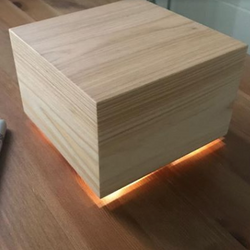5 Nap Disruptions and How to Overcome Them

by Jess Wartinger
Sep 28, 2017
Consistent naptimes are something parents rely on and plan for. Perhaps as a time to regroup and refocus or an opportunity to complete chores without little helping hands. Regardless, naptimes can be sacred times.
Unfortunately as baby grows and matures it’s likely you’ll run into nap disturbances. Perhaps they seem hit or miss and happen only occasionally. Or they may be like a freight train, barreling through what was your quiet time and, seemingly, here to stay.
Either way, it can be confusing when a baby suddenly awakes from a sound sleep. The fix might be simple but identifying the problem isn’t always clear-cut. Check out these reasons why babies wake early and find how to overcome nap disruptions for your little one.
5 Nap Disruptions and How to Overcome Them
Nap Disruption #1: Baby is Hungry
Article Continues Below Advertisement
If baby begins fussing during nap, a good first step is to think back to his previous feeding.
Ask yourself these questions:
Did my baby get a good feeding the last time he ate?
Could my baby need more milk calories in a 24-hour period?
Is my baby beginning a growth spurt?
Is my baby ready to begin solid foods?
Babywise Solutions:
Make sure baby is receiving full feedings throughout the day and isn’t falling asleep during feedings. If he finishes his bottle or nurses for longer than usual, he may need more milk calories throughout the day. This is something to chat with your pediatrician about.
Growth spurts will disrupt established sleep routines for the length of the grown spurt, typically about four days. Feed as often as your baby needs during growth spurts, while trying to maintain a routine schedule. Growth spurts vary, but often occur around three weeks, six weeks, three months, and six months of age.
If your five to six month old has abnormal waking at night, this may be an indication that baby is ready to begin solid foods. Plan to talk with your pediatrician at baby’s four month checkup about when to begin solid foods.
Nap Disruption #2: Baby is Uncomfortable
Babies can become uncomfortable for a number of reasons related to both external factors (room temperature) or internal ones (teething).
Ask yourself these questions:
Article Continues Below Advertisement
Is my baby getting sick? Does he have a fever? Is he teething?
Does my baby have an itchy rash or bug bite?
Is my baby too hot or cold?
Does my baby have a diaper rash?
Babywise Solutions:
A sudden, sharp cry typically indicates pain and you’ll want to take time to look carefully at baby. Check his temperature. Look in his ears and nose. Search for emerging teeth. If those areas look okay you may need to become a detective.
Undress baby and search for any signs of rash or bug bites. Check all fingers and toes to make sure nothing is wrapped around them or cutting off circulation. A good response to a cry of pain is checking baby over thoroughly.
On cool nights try bundling baby in a sleep sack. Conversely, if it’s starting to warm up, see about dressing baby in a lightweight sleeper.
Nap Disturbance #3: Baby’s Belly is Bothering Him
Belly troubles are very common for babies and can have reasons both simple and complex.
Ask yourself these questions:
Article Continues Below Advertisement
Does my baby have reflux?
Has my baby recently tried a new baby food?
Is my baby constipated?
Does my baby need to burp?
Babywise Solutions:
Reflux symptoms affect many babies and may not always be present from birth. Reflux occurs when food or stomach acid travels up the esophagus and throat. It’s painful for baby and will be present throughout the day (not only at naptimes).
If you’re concerned your baby may have reflux try keeping him upright after feeding, elevating the head of his crib mattress a couple of inches, and plan to talk with your pediatrician.
When beginning a new baby food you’ll want to introduce one food at a time to make sure baby doesn’t have an allergic reaction. Allergic reactions can vary from skin rashes, to belly pain, to diarrhea. If baby has started a new food and is having belly trouble you’ll want to stop the food and see if he’s able to return to restful naps in the following days.
Nap Disruption #4: Baby is Learning a New Skill
Baby may be using naptime to perfect a recently learned skill.
Ask yourself these questions:
Article Continues Below Advertisement
Has my baby startled himself awake?
Has my baby recently learned how to roll over?
Has my baby learned how to sit up or stand?
Has my baby lost his pacifier and cannot resettle without it?
Babywise Solutions:
If you find your newborn is startling himself awake in the middle of a nap, you may
want to consider swaddling baby for naptime. Swaddling can help reduce the startle reflex and help baby sleep more soundly.
If baby has just learned a gross motor skill such as rolling, sitting, or standing, he may be practicing this skill at naptime. Try leaving baby for a few minutes and see if he’ll resettle. If baby’s crying continues or becomes more intense, try giving baby a quick cuddle and laying him back down.
If baby is losing his pacifier and unable to put it back in, or if he loses it and cannot find it consider putting extra pacifiers in his crib or giving a pacifier that has a small stuffed animal attached so it’s easier for him to find.
Nap Disruption #5: Baby is Beginning a Sleep Transition
Baby may be entering a sleep transition as he grows.
Ask yourself these questions:
Has my baby recently extended his nighttime sleep?
Is my baby now requiring less sleep in 24 hours?
Babywise Solutions:
Most babies will make a jump in nighttime sleep at some point, for example from 10 hours a night to 12. When this happens, you may see that baby does not need as many hours to nap throughout the day.
Similarly, if baby is sleeping too much in a 24 hour period, he will begin to subtract his sleeping hours (typically daytime sleeping hours). This leads to increased awake time and a decrease in the number of daytime naps.
Babywise Background
When talking about common nap disruptions, On Becoming Babywise assumes that your baby is sleeping at least 8 hours at night and is napping 1-2 hours per day. If your baby hasn’t established consistent nap routines, you may want to learn how to start a start a sleep routine with your baby.
Are you looking for more information about baby nap disruptions? Consider these articles:
Jess Wartinger
Jess Wartinger resides in rural New York with her husband and five children. Formerly an early elementary teacher, Jess currently spends her time loving her kids and holding down the fort at home.














